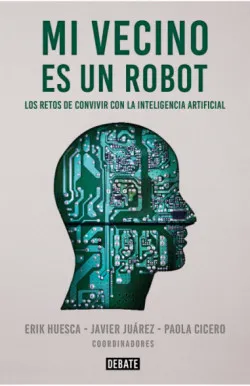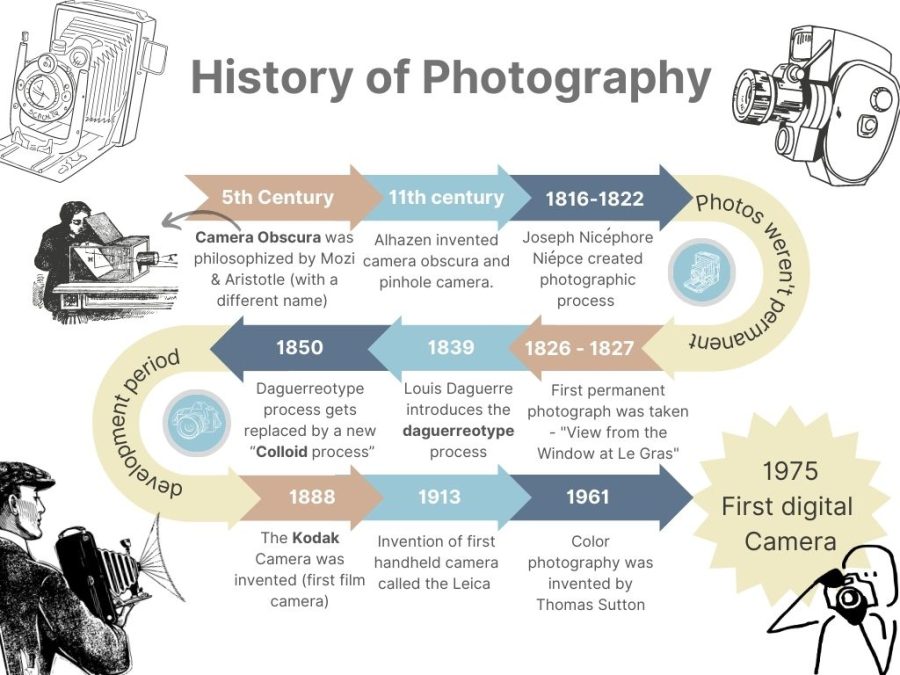Artificial Intelligence is fast becoming one of the most important aspects of our day-to-day life in our communities at school, socially, and at home. It is important to keep an open discussion about Artificial Intelligence because AI changes faster than the general public can understand what AI is being used for.
Dr. Eric Huesca Morales, author of My Neighbor is a Robot, is a recognized specialist in AI who is based in Mexico. He is a physics graduate from the UNAM and received his Doctorate of AI at USC at Berkeley. He is President of the Programming Mexican Informatic Chain Academy and is the President of the Foundation for Knowledge and Digital Culture. In his book, he discusses the concepts of cohabitation with technology as it affects most aspects of our everyday lives.
In My Neighbor is a Robot, Dr. Morales refers to the neighborhood, or what is considered the day-to-day interactions, of Specific Artificial Intelligence, these are the things we already lived with for about 5-7 years, and naturally, we’re delivering information and data so it can be more precise. That is the neighborhood with AI. This technology allows us to understand that it can lead to problematic situations if we’re not using it the right way, but if used correctly, it can be beneficial.

The central theme of My Neighbor is a Robot is centered around the now-famous technology, ChatGPT. While fascinating to use, there are leaders in legislature and education who fear that ChatGPT will cause a strong moral diffusion with property rights, research, and attributions of the work product. Like humans, ChatGPT needs nutrients, and so does every center of AI. These centers need to be filled with data, and the data is filled by humans in a volunteering way for platforms and systems.
Data can be expensive to deliver and those who participate in using AI’s free services cease to be the user and become more like a databank, or merchandise provider. Once the user is transformed from the user to the giver of information our most intimate data can and is being utilized as a product. The user is essentially giving away large amounts of valuable data for free. This data consists of likes, dislikes, interests, searches, and more. Now, these tendencies create profiles of the behavior of the net for day-to-day life, and from that information, ChatGPT is based.
When a user asks ChatGPT where all the data being used comes from, he or she is likely to receive an answer, that is as revealing about the user as it is the technology. Our cohabitation with artificial intelligence is causing fascination and at the same time fears, concerns, and huge ethical dilemmas. This seemingly benign chat a user has with technology is also a cooperative act that feeds not only ChatGPT but other programs that are being newly invented as the chat continues. This proliferation of data creation is almost too large to keep going.
The supply of information, documents, laws, acts, science, books, and AI has every possible aspect, that’s the big topic about AI and the things that are being discussed. When we talk about challenges, experts like Dr. Huesca, we often wonder; what are their questions and answers about AI. What we first ask is, what else are we going to do and in which way? Because the same book talks about it, we have 2 different types of AI; The General, which is the one that scares us, is on the media, a robot that can interact with everyone on a lot of topics in a natural way. The Specific AI systems; are learning deeply about a specific topic, or a specific area (like Face ID, biometrics, legislation).
We shouldn’t be scared, because in the end, all we have is a big copyist, a system that’s not a creator, just copies. It copies styles, and it presents you something similar, even in programming; you can tell the machine to write you a code in any type of language, and it will, because with those codes and that language, there are thousands of lines and he can do it, but he cannot create. This is important to keep in mind, it doesn’t create, just copies and reproduces by the rules that they’re putting into the system.
The new generations will have to fight with this aversion of privacy, because it’s giving away all this information, and then you can’t complain that this information was used, because you gave it up. So, that comes with all the ethical dilemmas that the corporative are taking advantage of, and we’re the merchandise at the end of the day.
There is a strong ethical dilemma, nowadays there’s a lot of systems that propagated prejudices of gender, formation in universities, and that leaves you without the capability of replica. The system, the same system told you that you weren’t able to have the job, because you were trans, a woman, etc. Talking about the big prejudices that the AI systems are spreading, the gravest situation, that is at everyone’s sight, all these machines and systems that were bought have feminine names, which leaves the stereotype that the woman has to keep being an assistant.
We have derivate to something about democracy, there is already a very big discussion about when its extents these democracies, these AI systems that are being used in several ways, there’s very direct experiences that were a global scandalous; example, Cambridge Analytics. There’s a lot of cases that talks about the size of the issue. Now, what happens with the usage of this system for introducing behaviors, determine thoughts, perceptions and electoral decisions? That’s a big issue because people need to ponder that we cannot believe everything we see, everything we hear, that we need to have a more critical thinking and less digital.
Lately, societies have been forgetting that the human capability has more fuzzy logics that can save us. This type of things, like Cambridge Analytics has a really strong impact, or like winning an election that is induced by millions of bots for the simple price of 500,000 dollars, or when your indulging certain prejudices that needs to be spread for the society to consume in a certain way. At the end of all, this is capitalism, and politics also become a merchandise that you’re negotiating and merchandising with. These systems just have a goal for businesses, not necessarily power. Big corporations are even above the National States, they achieve a goal simply out of business.
Business and power can come together or separated, example; the government, a president, an authority figure, these people determine things of the business in such a way. The interest crosses in this topic and one stays thinking, what type of answers its giving? when there’s an industry of automatization, an organically conversation of media, someone expects a vigorous debate, discussion of the society or the topics that they care about, but they end up flooded of bots and at the end there’s and induction of the public opinion, public debate and a direct affectation to the democracy. These are some of the biggest problems that we’re already facing, part of our neighbor robot.








